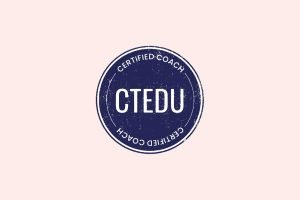In the mid-2000’s I told my father that I was going to become a professional coach. He laughed and told me that coaching “wasn’t a thing.” Maybe you’ve heard that somewhere along the line too – that coaching isn’t a legitimate path?
Fast forward to now, and oh my, how things have changed.
Not only am I a professional, ICF-credentialed coach who has served hundreds of clients, but I’m also running a coach training program at Lumia Coaching that’s equipped thousands of people to make a real impact in the world.
I’ve had a front row seat to the revolution, witnessing first hand how far the coaching industry has come in a relatively short time. We’ve grown, we’ve evolved, and yes, we’ve faced our fair share of difficulties along the way. And we still grapple with familiar themes of recognition, ethics, and growth.
You’ve probably seen the recent articles in The New York Times and ProPublica that have cast a critical eye on our industry. There’s been a lot of talk, and some fear. But here’s the way I see it – as an opportunity for us coaches to come together and shape the future.
Rather than shrinking from the scrutiny, this is our moment to address the issues head-on and have an open conversation about what these exposés mean for us and our clients. We can also arm ourselves with facts in order to stand tall and feel confident about the value of the work we do as coaches – on every level.
Table of Contents
The Unregulated Nature of Coaching: What Does It Mean for Us?
Anyone can hang up a shingle and then label themselves a “life coach” without any formal training or credentials. And while this has made coaching accessible as a profession, it’s a double-edged sword that’s shaped our industry in some pretty interesting ways.
On one hand, this lack of regulation has allowed for incredible innovation and diversity in coaching approaches. We’ve seen impactful coaches emerge from all walks of life.
It also leaves the door wide open for less-than-scrupulous characters, and recent media scrutiny has turned a spotlight on some pretty alarming practices. We’re talking theft, coercion, and even cult-like behaviors from individuals masquerading as life coaches.
Yet, these kinds of bad actors aren’t unique to coaching. From shady business practices to legal misconduct, no field is ever immune.
So, what does all this mean for you and me – coaches with integrity who are committed to serving our clients professionally, ethically, and effectively?
Well, it means we’ve got a pretty big responsibility on our shoulders. We’re pioneers and standard-bearers for an entire emerging profession! Regulation may come eventually – and I suspect it will – but that day may be years away.
For now, we’re defining what coaching is in real-time, and what the future of our industry can and will be. Every client interaction, every workshop, every social media post – it’s all shaping public perception of what coaching can do. That’s both incredibly challenging and undeniably exciting.
And let’s not forget, this is a growing field with serious economic clout. In 2022, the coaching industry hit a whopping $4.564 billion and is continuing to grow. Coaching’s rapid market growth only underscores the importance of getting it right. As our industry expands, so too does our responsibility to set high standards and demonstrate the true value of coaching.
The Real Impact of Coaching
If someone asks you about the efficacy of your work as a coach, there’s a great deal of reputable research backing the positive outcomes of coaching, including academic studies from institutions like UNC Chapel Hill and published reports from the National Institutes of Health.
Coaching draws on adaptive therapeutic change technique, goal-setting theory, the science of positive psychology, neuroscience and proven methods. In fact, I often tell students in Lumia’s coach training program that when in doubt, to lean heavily on the science behind coaching.
According to many different research papers and studies (including some published by the Journal of Positive Psychology and the 2009 ICF Global Coaching Study), here’s a verifiable list of just some of the many outcomes clients can expect from working with a skilled coach:
- Improved performance in work, sports, and academics
- Greater goal attainment
- Enhanced self-regulation and self-efficacy
- Increased well being and life satisfaction
- Leadership development
- Career advancement
- Better relationships and communication
- Sustainable behavioral change
When it comes to coach training programs, there are so many excellent ones to choose from. Ones that teach proven, in-demand professional skills – without promising unrealistic outcomes or bleeding students dry.

Whether a consumer is looking to hire a coach, or plans to enroll in a coach training program, my advice in making that decision would be the same. Look at their deliverables, rather than aspirational promises. We can and should expect reputable practitioners to have a strong foundation in both the art AND the science of coaching.
Why Having Standards Matters
In my observation, the International Coaching Federation (ICF) has emerged as a leading global body in establishing professional standards for our industry for just this reason.
At Lumia, the coach training program I founded and have run for over a decade, we chose to become ICF-accredited several years ago. As I scanned where our industry was headed, I felt the best way to serve our students (and increase their access to the market opportunities of the future) was to implement and promote more rigorous standards and ethics for our own coaches.
But what’s in it for you? Why should we care about credentialing if it’s not “required”?
In my view, credentialing by an independent association such as the ICF boosts your credibility, instantly building trust with potential clients. It’s not just a one-time achievement either – maintaining my own credential has kept me learning, growing and evolving as a coach year after year.
I’ve also found that a credential opens doors globally, giving us international recognition and access to a wealth of cross-cultural resources. And let’s not forget the ethical framework it provides, helping us navigate tricky client situations with confidence. In an unregulated industry, having this kind of backup and support is a game-changer for building a sustainable coaching practice.
Shifting the Conversation: How We Can Respond
We’ve got some pretty heavy hitters taking swings at our industry, and articles like the ones I saw in ProPublica and The New York Times this year always give me pause.
But for every point there is a counterpoint. Let’s not forget that we’ve got Harvard Business Review and The Wall Street Journal talking just as persuasively about the effectiveness of coaching. And The New York Times itself published an article not long ago calling for coaching skills to replace the hierarchical management practices of yesteryear.
So, where do we go from here?
I’d like to offer a couple suggestions on how you can enter the conversation, showcasing the true power of coaching with confidence:
- Be a knowledge sponge: Stay on top of the latest coaching research and best practices. When someone throws a critique your way, you’ll be ready with solid, up-to-date info to back up your work.
- Open book policy: Be upfront about who you are, what you do, and how you do it. Transparency builds trust, and trust is everything in our growing industry.
- Integrity isn’t optional: Stick to your ethical guns, always. When we all embrace a common set of values, it lifts the entire profession.
- Shout it from the rooftops: Got a coaching win? Share it with your community and let us celebrate with you. Your success stories are living proof of coaching’s impact.
- Never stop learning: Our field is always evolving, and so should we. Continuous learning keeps us sharp and our practices cutting-edge. (And there’s plenty of great research coming out every single day.)
By getting loud and proud about the positive changes we’re making in people’s lives and holding ourselves to high professional standards, we’re not just defending our profession – we’re defining it.
I often say that coaching is the profession of hope. You and I are part of a young, evolving industry which can be incredibly rewarding. Yes, there will be bumps along the way. But by staying true to our ethics, always improving our skills, and focusing on the tangible impact we have on the lives of others, we can ensure that coaching’s star only continues to rise.

Noelle Cordeaux
Noelle Cordeaux, PCC, is co-founder and CEO of Lumia Coaching. Committed to shaking up the status quo, she’s trained thousands of impact-driven professionals to date. Noelle’s private practice leverages her background in relationship science to help clients navigate the complex business of being human - from boardroom to bedroom.









Be First to Comment